 Petzlover
Petzlover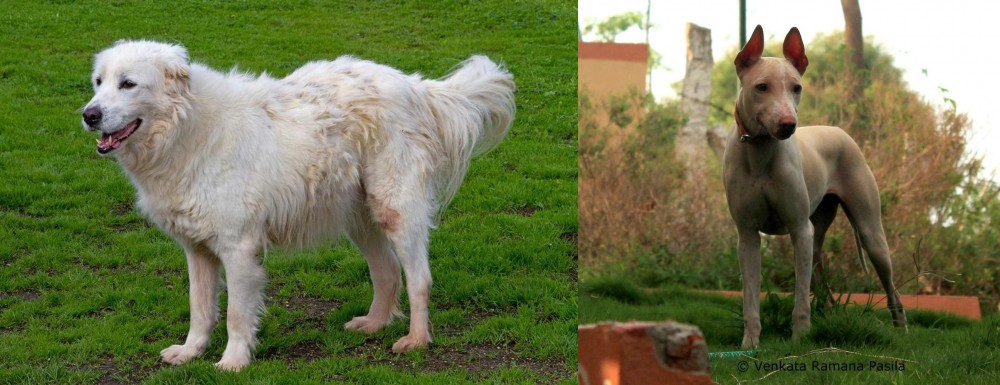 Abruzzenhund is originated from Italy but Jonangi is originated from India. Abruzzenhund may grow 20 cm / 8 inches higher than Jonangi. Abruzzenhund may weigh 24 kg / 53 pounds more than Jonangi. Both Abruzzenhund and Jonangi has almost same life span. Abruzzenhund may have more litter size than Jonangi. Abruzzenhund requires Moderate Maintenance. But Jonangi requires Low Maintenance
Abruzzenhund is originated from Italy but Jonangi is originated from India. Abruzzenhund may grow 20 cm / 8 inches higher than Jonangi. Abruzzenhund may weigh 24 kg / 53 pounds more than Jonangi. Both Abruzzenhund and Jonangi has almost same life span. Abruzzenhund may have more litter size than Jonangi. Abruzzenhund requires Moderate Maintenance. But Jonangi requires Low Maintenance
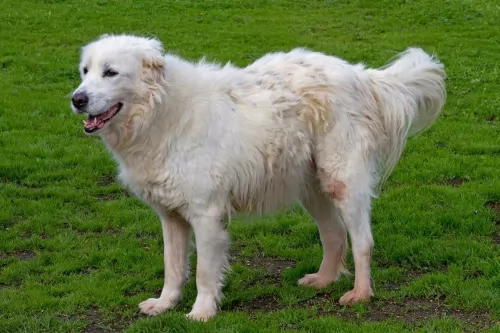 Abruzzenhund was established as an individual breed in the middle of the 20th century. They are descendant of the big, white Eastern sheepdogs which came to Europe 2000 years ago. Abruzzenhund is a mix of Turkish sheepdogs Akbash and Karabash, the Kuvac, Slovakian breed Hungarian breed, Komondor, and a French sheepdog Pyrenean Mountain Dog. Those dogs were much bigger than today’s breed. Abruzzenhund is still not very popular breed, but it is very common in Great Britain and Italy. They have been used as guard dogs, hunting dogs, and working dogs because they are very brave and strong.
Abruzzenhund was established as an individual breed in the middle of the 20th century. They are descendant of the big, white Eastern sheepdogs which came to Europe 2000 years ago. Abruzzenhund is a mix of Turkish sheepdogs Akbash and Karabash, the Kuvac, Slovakian breed Hungarian breed, Komondor, and a French sheepdog Pyrenean Mountain Dog. Those dogs were much bigger than today’s breed. Abruzzenhund is still not very popular breed, but it is very common in Great Britain and Italy. They have been used as guard dogs, hunting dogs, and working dogs because they are very brave and strong.
 The Jonangi, known also as the Jagilam or Kolleti Jagilam is an Indian breed of dog which has always been used for hunting and herding.
The Jonangi, known also as the Jagilam or Kolleti Jagilam is an Indian breed of dog which has always been used for hunting and herding.
The dog isn’t seen abundantly in India and it isn’t recognized by any major kennel clubs in India. It isn’t recognized as a pure” breed and there is also concern that the dog is reaching extinction.
Because of interbreeding with other dogs, there is quite a bit of variation in the Jonangi breed.
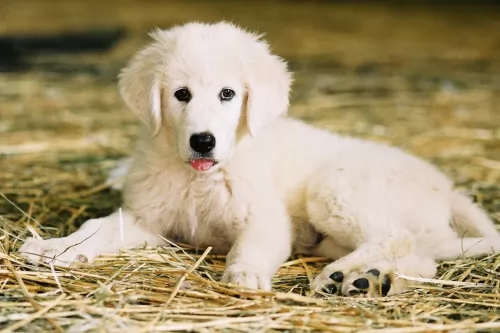 A height of Abruzzenhund variates between 60-73 cm, males are slightly bigger than females. While the weight is 30-45kg, again, males are heavier than females.
A height of Abruzzenhund variates between 60-73 cm, males are slightly bigger than females. While the weight is 30-45kg, again, males are heavier than females.
Abruzzenhund lifespan is between 11-13 years, but since these dogs don’t have any weaknesses and don’t tend to get sick, they can live longer with a proper care and adequate food and training.
Litter size of Abruzzenhund depends, but as any large breed, they usually have 6-9 puppies. And that is a very good considering size of the breed.
Abruzzenhund is not the only name of this breed. There are more names that you might hear. You can hear names like Maremma, Pastore, Abruzzese, Cane da Pastore, Maremmano- Abruzzese, Italian Sheepdog, and many similar names. Basically, they sound similar but there are differences.
Abruzzenhund is a friendly dog, but it is very powerful. Very strong jaw with a scissors bite makes them very strong. They have small but intelligent eyes, usually dark colored. The undercoat is dense, while the coat is white with segments of ivory to white yellow. Their long undercoat and coat make them winter resistant.
 The Jonangi is a medium sized dog that stands between 43 – 53cm in height and weighs between 12 and 21kg. He is lean and muscular. Because of interbreeding with the Jonangi dog, the colors of their coats can vary and be anything from fawn, white, tan, black, bi-colored or even brindle. The coat is very short and fine which helps it cope with the extreme heat of the environment.
The Jonangi is a medium sized dog that stands between 43 – 53cm in height and weighs between 12 and 21kg. He is lean and muscular. Because of interbreeding with the Jonangi dog, the colors of their coats can vary and be anything from fawn, white, tan, black, bi-colored or even brindle. The coat is very short and fine which helps it cope with the extreme heat of the environment.
The ears are erect, the forehead is often wrinkled and the long tail is held out straight or it hangs down low. The ears are fairly short and are somewhat floppy.
The Jonangi is capable of being a true family pet, becoming loyal and devoted to his human family. This isn't a particularly intelligent dog but they're even tempered, fun loving, social and easy to please.
You'll find them getting on well with other pets in the home and children too. An interesting aspect with this dog is that he seems to like digging a hole and lying in it, even preferring this to the regular dog beds you get.
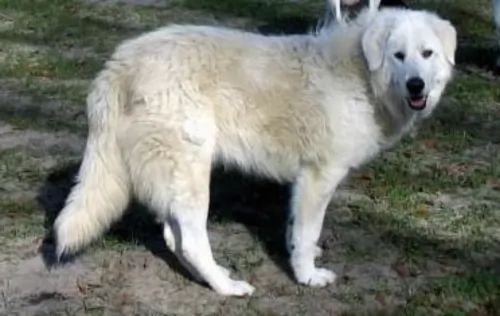 Abruzzenhund is a very well-balanced breed who loves spending time with other animals and people. They have a very good temper. They love being around families, and they are very gentle with children. It is important to train Abruzzenhund properly because the dog of that size should be a leader. A human with a strong character should train this breed. Training is important because they tend to make their own decisions which can be bad sometimes.
Abruzzenhund is a very well-balanced breed who loves spending time with other animals and people. They have a very good temper. They love being around families, and they are very gentle with children. It is important to train Abruzzenhund properly because the dog of that size should be a leader. A human with a strong character should train this breed. Training is important because they tend to make their own decisions which can be bad sometimes.
 Life with a Jonangi is easy going as these aren’t finicky dogs – they’re low maintenance, easy going, fairly healthy dogs that want to please you and just be your pet.
Life with a Jonangi is easy going as these aren’t finicky dogs – they’re low maintenance, easy going, fairly healthy dogs that want to please you and just be your pet.
They make excellent companions, being loving and loyal to their human families and getting on well with other dogs and children in the home.
There are those who are trying to revive the breed, and that is a good thing as these are good natured family pets that will be a positive addition to any home.
 This dog is a robust breed, used to living under difficult circumstances. You won't find many inherited diseases with him, but still it pays to know about some of the more common dog illnesses that he might face.
This dog is a robust breed, used to living under difficult circumstances. You won't find many inherited diseases with him, but still it pays to know about some of the more common dog illnesses that he might face.
With any dog, the joints can take quite a pounding which can lead to injuries. You may notice your dog doing less and having difficulty with common activities. Your dog may even have lameness. Your vet will try to avoid surgery and look at things such as diet and weight management. There are also medications, anti-inflammatories and pain relievers.
Ear infections are common with dogs and can be caused by allergies, ear mites and bacteria in the ear canal. Your Jonangi may be tilting his head or shaking it, he may be constantly scratching his ear, he may even have lack of balance and an unpleasant odor coming from his ear because of a discharge. Take him to the vet as soon as you think he has an ear infection.
This problem which affects a dog’s lower urinary system can be totally debilitating for your dog. There are many problems which can cause this problem in your pet and which can lead to health conditions such as incontinence.
Older dogs and those with diabetes are more prone to urinary tract problems. Your dog will strain or yelp with discomfort when trying to pass urine. The urine may be very cloudy or even have blood in it and there may be dribbling of urine too. Other signs can be vomiting, lethargy, back pain, weight loss and change in appetite. See your veterinarian for immediate medical attention. It is considered a medical emergency.
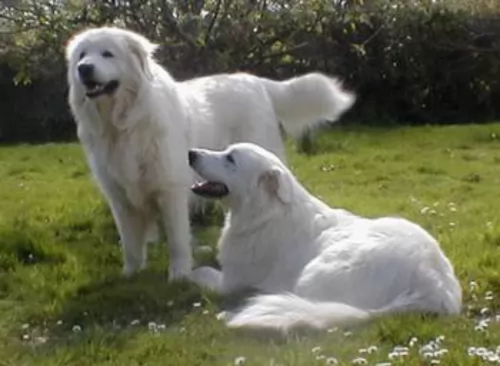 They learn very quickly, but it requires strong will and constant training to keep them happy. They are great working dogs, and with the positive training, they are amazing. It is very important that they follow rules and to keep them in balance with training.
They learn very quickly, but it requires strong will and constant training to keep them happy. They are great working dogs, and with the positive training, they are amazing. It is very important that they follow rules and to keep them in balance with training.
They can eat a lot of food, depend on their activity. High-Quality dog food twice a day for a grown dog is a must. While puppies should eat 3-5 times, smaller portions of food. The food is important especially for working dogs, they need up to 2000-3000Kcal per day. Abruzzenhund will enjoy eating meat with a lot of vegetables and oil.
They are not recommended for small house or apartment. They need big yard because they require a lot of space. During the winter they can be outside because of their coat, but during the summer they need to be in the shade with a lot of fresh water available anytime.
The coat should be brushed and groomed very often because they have a thick coat. There is a lot of dead and loose hair in it. During shedding, period takes even more time to groom your dog properly. They love and they need exercise. Mental exercise is important as physical. Every day walking, running, playing with other animals is an important part of dog's activity. When they get enough quality exercise, they will sleep in the house.
 With commercially manufactured dog food, there are companies that make quality foods that are formulated for certain conditions such as joint health. They have additives in them such as fish oils which decrease inflammation. Always look for a food that is appropriate for your dog’s age and energy levels.
With commercially manufactured dog food, there are companies that make quality foods that are formulated for certain conditions such as joint health. They have additives in them such as fish oils which decrease inflammation. Always look for a food that is appropriate for your dog’s age and energy levels.
Add in your own home-made food to his dry kibble such as cooked chicken, brown rice and pasta as well as vegetables and also try to include some raw meat into his kibble from time to time. Fresh, cool water should be available to him night and day.
With his short coat, the dog is looked upon as low maintenance. Brush him a couple of times a week to make sure the coat remains shiny. Check his eyes, ears and teeth for infections.
This dog is lean, energetic and agile. With his long strides, he likes to run over terrain sniffing and following scents. He is more suited to life in the countryside than to the city. Make sure you have a reasonable sized garden for him and meet his exercise needs by taking him on walks and playing ball and fetch games with him.